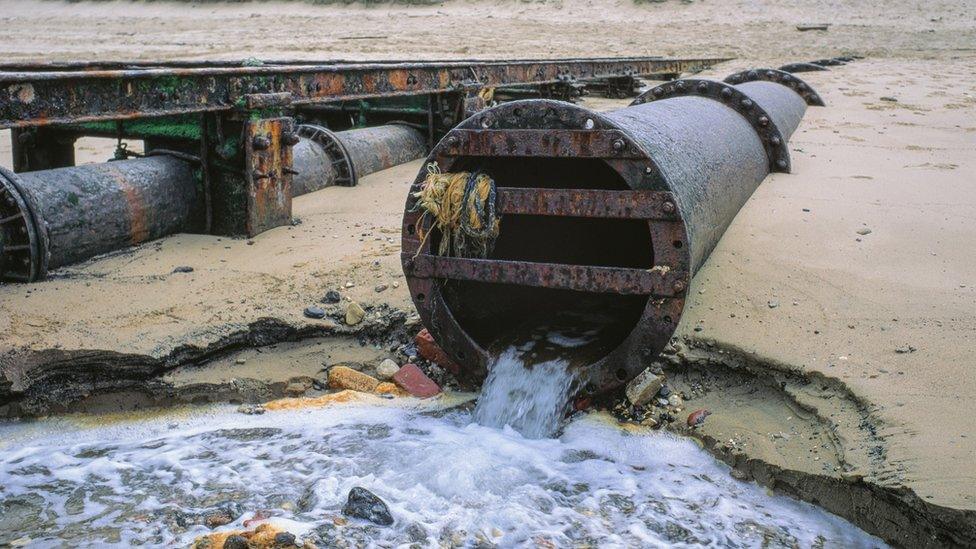Clean waters: Why was untreated sewage illegally pumped into Windermere?
- Published
- comments
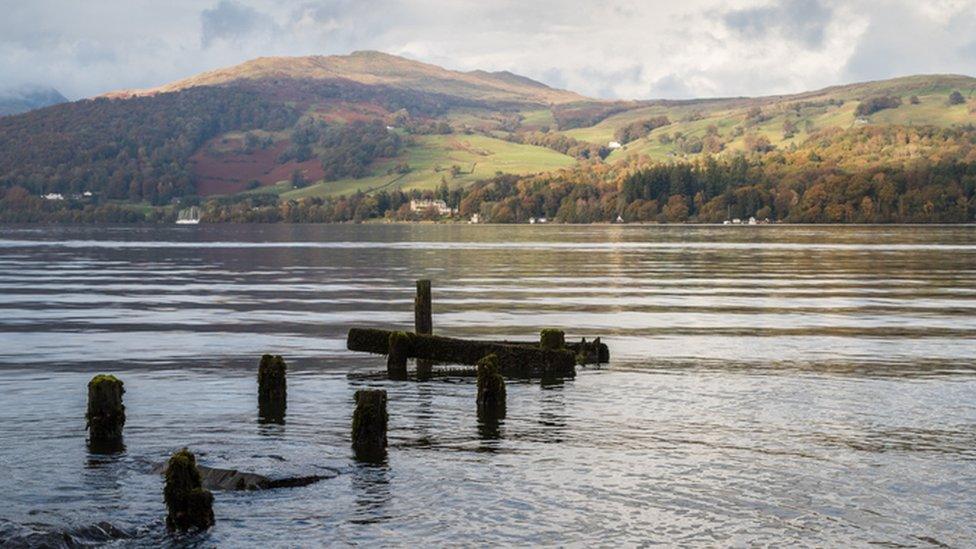
Tests are being carried out on the water quality of Windermere, after a BBC investigation found sewage was illegally pumped into the lake.
The BBC looked at documents from a water company - called United Utilities - which showed they did not report sewage going into the lake until 13 hours after it started.
Located in the Lake District, Windermere is a Unesco World Heritage Site - which means it's an area that is looked after for people to enjoy for many years.
Water companies are sometimes allowed to spill some sewage when there's been a lot of rain - However, it is illegal if they do this during a drier spell, which is what appears to have happened on this occasion.
Where is Windermere?
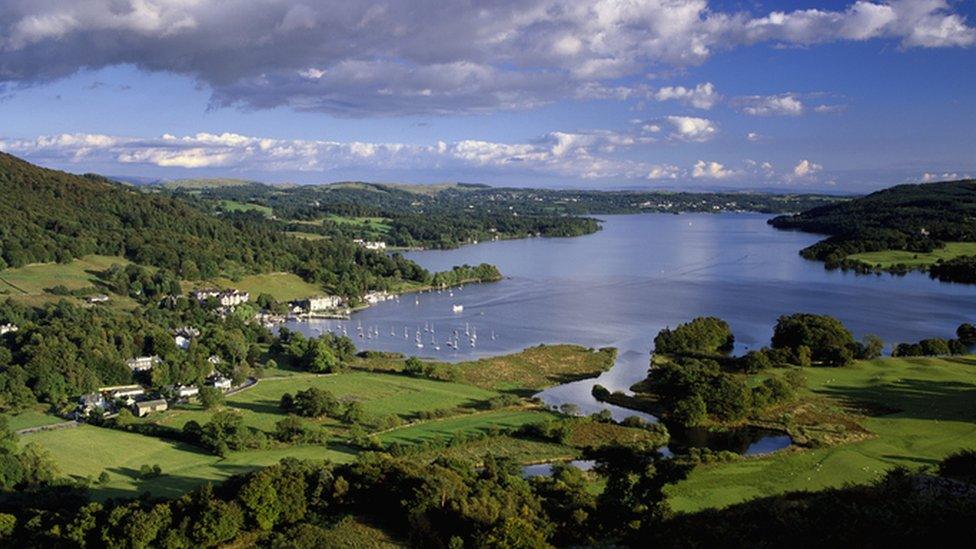
Windermere is England's biggest lake - it's located in the Lake District, in the county of Cumbria, in the north west of England.
The lake and surrounding areas are popular among tourists with Windermere used for various water sports such as swimming and canoeing.
For the past few years, Windermere has been turning green in the summer, due a problem called algae. Algae is natural and develops in most bodies of water, but when there's too much of it, it can feed on the nutrients in water like oxygen, which makes life harder for animals and plants living there.
When there's a big blue-green algae bloom people are advised not to go swimming in the lake, or let their dogs go near the water.
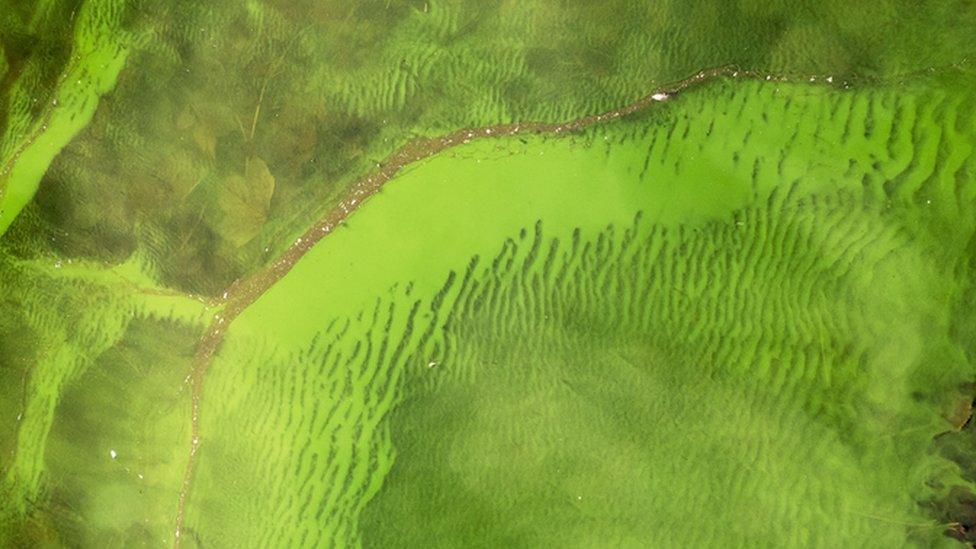
This is what the algae can look like on the water
Although it's called an algae, it's actually a bacteria called cyanobacteria.
It appears naturally in our lakes, rivers, ponds and canals. When the bacteria group together it sometimes makes the water look green.
When algae grows, it's called a bloom.
How did a sewage spillage happen?
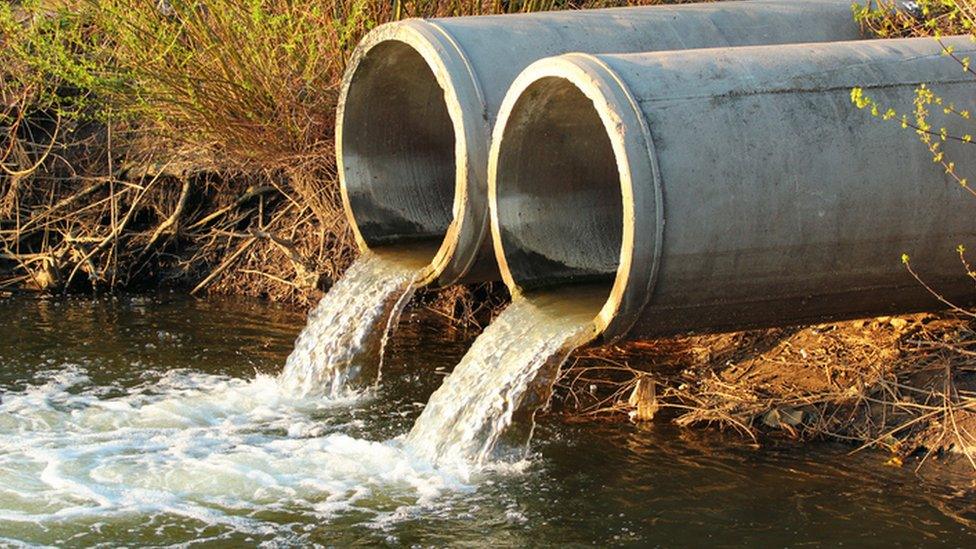
On 28 February, millions of litres of raw sewage was pumped into Windermere for ten hours. There was a fault in communications between a sewage pumping station and a wastewater treatment centre - which is where sewage is sent to be treated so there's nothing dangerous in the water.
This meant untreated sewage started being released into Windermere. That's when untreated - poo, wee and everything else that goes down toilets, sinks and drains - is released into the water.
This isn't the first time this has happened. In 2022, there was a very similar leak.
United Utilities is the water company that's in charge of getting the water treated. If there's a sewage leak like this, they're meant to tell the Environment Agency, who are in charge of making sure our environments like lakes and rivers are kept safe.
A BBC investigation discovered that United Utilities didn't tell the Environment Agency until 13 hours after the pumping started.
Water companies are allowed to release some untreated sewage into our waterways under special circumstances.
When there's very heavy rain, water treatment centres can become overwhelmed with water and waste. To make sure water doesn't leak back up through our plugholes or toilets, they release some of the untreated sewage into rivers, lakes and the sea.
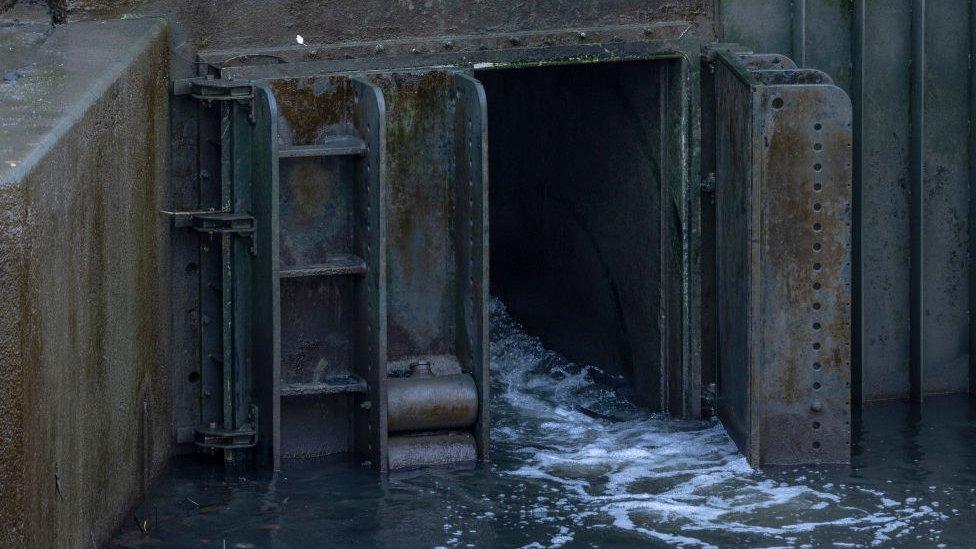
Sewage can be pumped out of treatment planets, like this one
What has been said about it?
A spokesperson from United Utilities said "As soon as we discovered this fault - our engineers took urgent steps to resolve the situation".
The company said that water samples from near to where the spillage happened were taken.
They samples appeared to show the release of sewage had limited or no impact on the lake. But they were collected more than four hours after the pollution had stopped, and were taken on the lake shore, not from the middle of the lake where the sewage was released into the water.
Environmental campaigners have asked the Environment Agency and water companies like United Utilities to do more to protect the lake.
"Time and time again the same thing keeps happening here in Windermere: United Utilities pollutes the lake and the Environment Agency turns a blind eye to it", said Matt Staniek, from campaign group Save Windermere.
A spokesperson from the Environment Agency told the BBC that they are doing "a thorough investigation into the incident", and that if any water company breaks the rules, it will make sure the "appropriate enforcement" happens.
- Published6 September 2023
